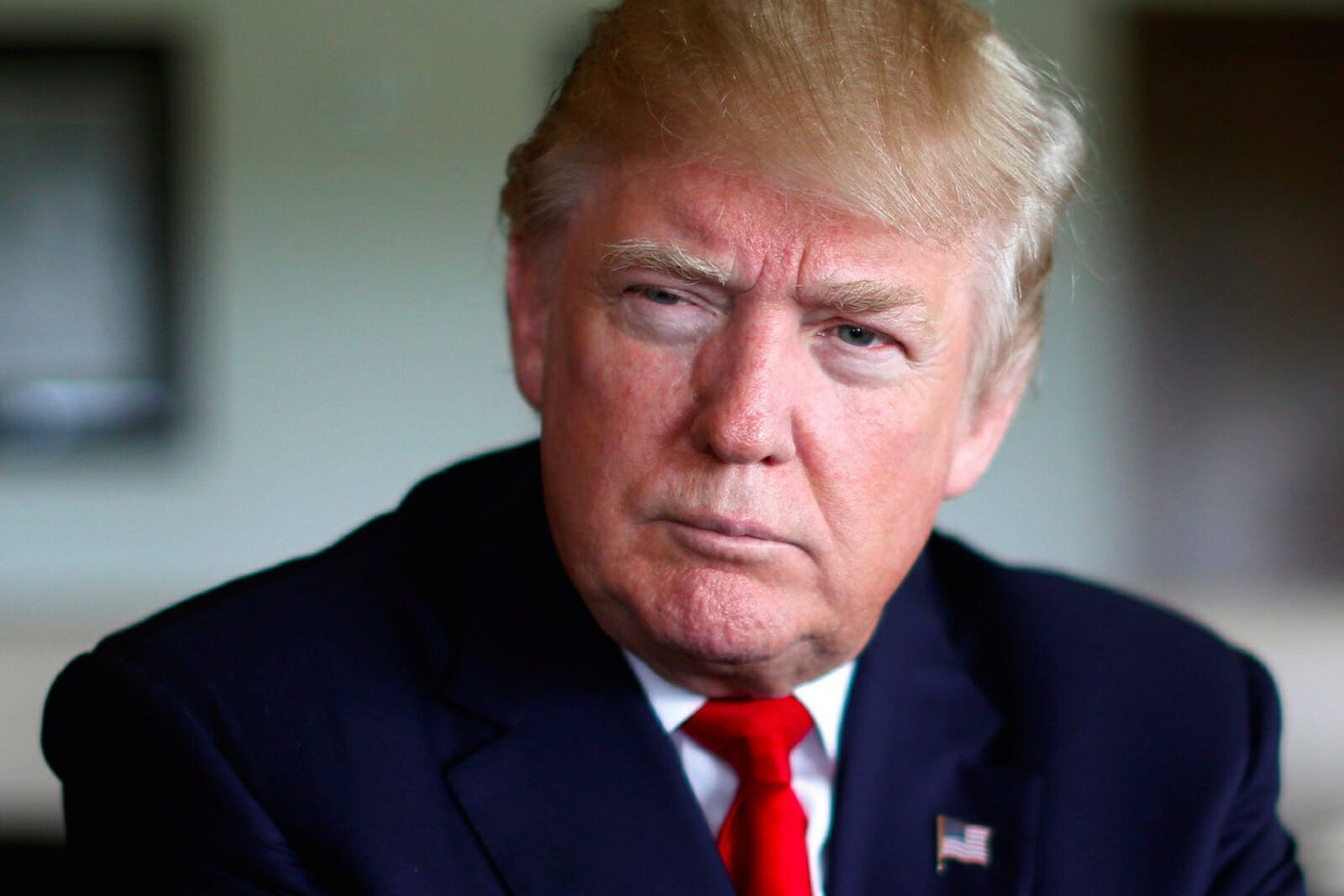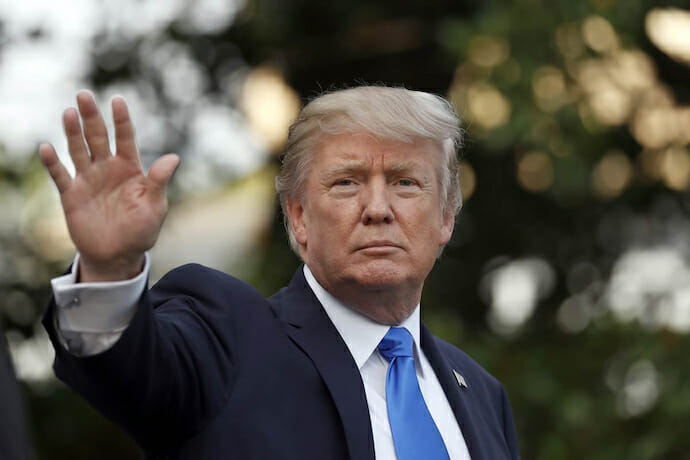
Politics
The Russia Issue and Why It Matters
After the past release of several bombshell reports which indicated that the Trump Campaign-Russian collusion investigation headed by Special Counsel Robert Mueller was expanding, and the subsequent ensnarement of his inner-circle, the president forcefully reinforced his view that the entirety of the Russia issue was a “witch hunt.” As public angst has amplified, the president’s most ardent apologists have attempted to assist the beleaguered administration by baselessly alleging that the issue itself is little more than a “political circus.” The only problem is that no reasonable observer could find this sordid and bizarre affair to possess anything other than the distinct stench of nefariousness.
Since the dawn of Donald Trump’s presidency, his administration has been embroiled in the controversy surrounding the Russian government’s interference in the 2016 presidential election. It’s an issue that has been featured prominently in a great number of Sean Spicer and Sarah Huckabee Sanders’ daily press briefings. However, despite the growing chorus of questioning, the president and his supporters have steadfastly disavowed any connection between the Trump Campaign and the Kremlin.
Regardless of his adamant denials, the president’s potential connections to Russia concerned intra-party rivals to such an extent that during the Republican primary they commissioned what became known as the “Trump-Russia Dossier.” This explosive document, compiled by retired MI6 officer and Russian affairs specialist, Christopher Steele, ultimately made its way into the hands of the Democratic Party before drawing the attention of U.S. intelligence agencies. To be clear, much of the dossier has not been verified—particularly its salacious claims, however, former President Obama found it necessary to brief Trump on the dossier’s existence and its contents prior to the latter’s inauguration.
On its own, we may be inclined to simply brush off the dossier as nothing more than weaponized political vitriol, rather than questioning why political adversaries from within Trump’s own party commissioned such a report in the first place. However, there are now so many Russia-specific anomalies in public view—aside from the president’s own potentially murky financial connections to the hostile state, that we can no longer afford to ignore the reality that so many individuals within the president’s inner-circle are reported to not only have had numerous communications with high-ranking Russian officials, but that they’ve ostensibly either lied or developed acute cases of amnesia about such dealings.
Russia talk is FAKE NEWS put out by the Dems, and played up by the media, in order to mask the big election defeat and the illegal leaks!
— Donald J. Trump (@realDonaldTrump) February 26, 2017
We must ask ourselves why the Trump Campaign’s former foreign policy advisor, Carter Page, awkwardly denied, then effectively admitted, that he had met with the Russian Ambassador to the United States Sergey Kislyak in Cleveland during the Republican National Convention. We must ask ourselves why Jared Kushner reportedly met with Russian banker and Putin ally Sergey Gorkov, and why he attempted to shield the Trump transition team’s communications from the U.S. intelligence community by soliciting the use of Russian diplomatic facilities and equipment. Why during his testimony before the Senate Intelligence Committee, did Attorney General Jeff Sessions cloak himself in a legal defense and stop short of denying he had meetings with Russian officials—meetings he failed to mention when applying for his security clearance, and why did he then recuse himself from the Russian investigation? To that end, why was the president irate over Sessions’ recusal?
Moreover, why did National Security Advisor Michael Flynn lie to Vice President Mike Pence about his dealings with the Russians if his communications were entirely above-board, and why was he subsequently fired if the offense wasn’t egregious in nature? Why did the Wall Street Journal publish a report indicating that a political operative may have attempted to gain Hillary Clinton’s emails from Russian hackers, possibly in partnership with Flynn? Why did Trump place his campaign squarely in the hands of Paul Manafort, a man known to have tirelessly worked to advance the Kremlin’s interests? Why was even Trump’s personal attorney subpoenaed by Congress for matters relating to the Russian investigation? Perhaps most damning of all, why did Donald Trump, Jr.—along with Manafort and Kushner, accept and partake in a meeting with a Russian lawyer offering damaging information on Hillary Clinton, and if taking that meeting was truly a derivative of political standard operating procedure, why did the president dictate his namesake son’s misleading statement about the matter?

After all of this, some might be inclined to simply write-off this pattern of reports and behavioral inconsistencies as the desperate attempts of a malicious media and political machine determined to cripple the Trump presidency. Some individuals may still adhere to the belief, despite virtually the entirety of his inner-circle suspiciously dealing with Russians, that Donald Trump himself—a man infamous for exerting tight control over his subordinates—remained oblivious to the activities of his top lieutenants. Yet, it’s incomprehensibly difficult to square such a roundly dismissive attitude with the Trump Administration’s particularly accommodating relationship with Russia, and it certainly can’t be squared with Mueller’s decision to expand his team, impanel a grand jury, and issue subpoenas.
It’s difficult to explain, until the recent appearance of a lone tweet, why the president repudiated the findings of the U.S. intelligence community—standing in opposition to the views held by his own CIA Director, Director of National Intelligence, NSA Director, Secretary of Defense, and Chief-of-Staff—that Russia interfered in the November elections. Moreover, it’s baffling as to why the president has shown virtually no interest in preventing future Russian cyber attacks. It’s difficult to explain why the president would meet with the Russian ambassador and foreign minister in the Oval Office, allowing only the presence of Russian state media, and relate to the Russian diplomats that firing the FBI Director eased Russia-related pressure.
It’s difficult to fathom why the President of the United States would heap repeated praise on a dictator whose top priority is to erode American influence abroad. In contrast, the president has insulted, demeaned, impugned, and strong-armed our closest allies. It’s even more perplexing as to why the president has thus far remained silent on Russia’s unprecedented decision to expel over 750 American diplomats, and why a man known for his ferocious combativeness declined to respond to a blistering personal attack from Russian Prime Minister Dmitry Medvedev, instead opting to attack Congress.
Many might ask themselves why the Russia issue matters, how it impacts the average American. It matters because the Kremlin actively assaulted American sovereignty by interfering in our elections. It matters because the United States is, perhaps unwittingly, aiding Russian foreign policy aims by steadily separating itself from NATO and the European Union, the two institutions responsible for securing lasting peace in Europe and beyond. It matters because the degradation of cooperation within our alliance systems may well place a disproportionately higher burden and level of risk upon American military personnel operating abroad. It matters because the expansion of Moscow’s influence in the Middle East is poised to create instability capable of increasing global energy prices, thereby rejuvenating the engine of Russian economic growth which has been paralyzed by sanctions, ostensibly at the expense of diversified economies like that of the United States which prosper when energy commodities remain moderately priced.
It matters because the president has degraded American institutions by pressuring, firing, and intimidating government officials connected to the Russia investigation. It matters because even after Acting Attorney General Sally Yates informed the White House that National Security Advisor Flynn had lied to Vice President Pence about his contacts with Russia and that he was vulnerable to Russian blackmail, the president compromised America’s national security by refusing to dismiss Flynn until the story broke publicly some 18 days later. The Russia issue matters because the president shared sensitive information with the Russians that could jeopardize the lives of American and allied intelligence officers in the field. The issue matters because even after Russian-sponsored hackers reportedly breached multiple points in the U.S. power grid—including a nuclear power plant, the president offered to form a cooperative cyber-security unit with Putin. The issue matters because the president intends to send 4,000 more troops to Afghanistan, where they’ll be fighting insurgents armed and aided by Russia. The Russia issue matters because Russia stands in firm opposition to America’s core values, and actively supports regimes which present an existential threat to the United States.
The issue matters because the preservation of American national security requires a resolute and objective brand of foreign policy, one executed by a president encumbered only by his duty to the United States.

